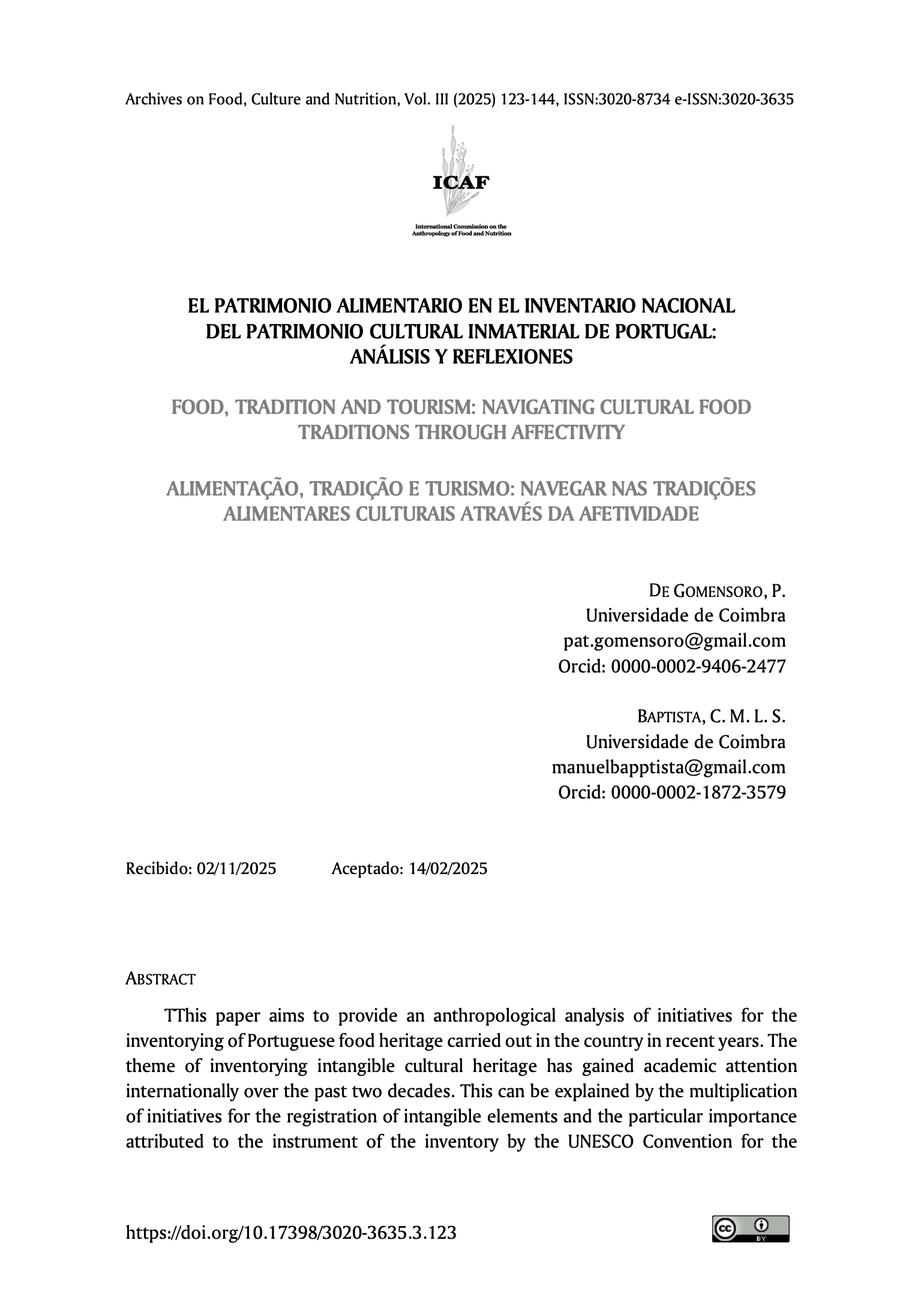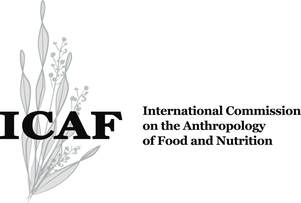Food heritage in the national inventory of intangible cultural heritage in portugal
Analysis and reflections
DOI:
https://doi.org/10.17398/Keywords:
Intangible cultural heritage, Food heritage, Cultural inventory, INPCIAbstract
This paper aims to provide an anthropological analysis of initiatives for the inventorying of Portuguese food heritage carried out in the country in recent years. The theme of inventorying intangible cultural heritage has gained academic attention internationally over the past two decades. This can be explained by the multiplication of initiatives for the registration of intangible elements and the particular importance attributed to the instrument of the inventory by the UNESCO Convention for the Safeguarding of the Intangible Cultural Heritage (2003). The same importance is evident in Decree-Law No. 139/2009, of July 15, which established the legal framework for safeguarding intangible cultural heritage in Portugal. However, the academic interest in the inventorying of intangible heritage, in general, has not extended to the specific domain of the Portuguese food heritage. The objective of the present work is to contribute to discussions on the heritage-making of intangible culture and the challenges posed by the inventorying of culinary practices and knowledge considered traditional.
Downloads

Downloads
Published
Issue
Section
License
Journal editors must be attentive to intellectual property issues and work together with their editor to manage potential infringements of intellectual property laws and conventions. It is important to note that the intellectual property laws of the local jurisdiction are sovereign.
All content published in Archives in Food, Culture and Nutrition (AFOCUN) is under a Creative Commons Attribution 4.0 International License (CC BY 4.0) for open access. This license allows others to distribute, remix, adapt, and build upon the work, even for commercial purposes, as long as appropriate credit is given to the original author. Authors retain copyright and grant the journal the right of first publication, registering the work under the corresponding attribution license. This allows third parties to use the published content as long as the authorship of the work and the original publication in this journal are acknowledged.
For more information about the license terms, see the official link: Creative Commons Attribution 4.0 International License.
Archives in Food, Culture and Nutrition respects the intellectual and proprietary rights (copyright) of published works and allows authors to freely use their own published works, always within the limits of applicable law









